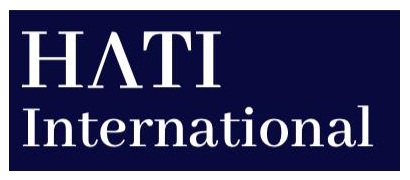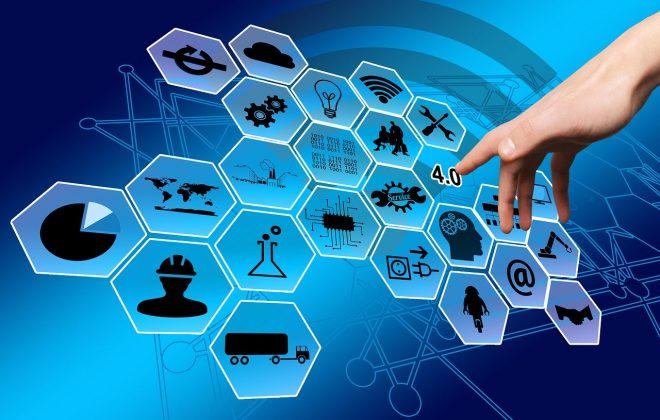How Blockchain can Transform the Healthcare Industry
With security becoming a grave necessity of every industry, blockchain technology is touted to be one of the most disruptive inventions of the modern world. While multiple industries are adopting blockchain technology to innovate the way they operate, the use case in the healthcare industry is particularly transformative. Considering the capabilities that blockchain brings to the table, it could soon become a must-have technology in the healthcare space: it can provide a new model for health information exchanges and make electronic medical records more efficient, decentralized and secure. Here’s how I think blockchain can transform the healthcare industry:
Blockchain and Drug Traceability
In the healthcare industry, organizations have been struggling with drug traceability for a long time. Do you know? Between 10 and 30 percent of drugs in developing countries are fake, and cost businesses upwards from $200 billion annually. However, with blockchain technology, healthcare institutions can now time-stamp transaction data and allow only those with explicit permission to edit it. By giving manufacturers the authority and access to transactions of the blockchain, the process of tracing drugs can be made easier, while controlling the chances of counterfeiting. Since every transaction across the drug life cycle gets recorded, detecting the anomalies gets reasonably easy, and the person or organization responsible for the irregularity can be held accountable. Manufacturers can have end-to-end visibility into the drug lifecycle and can choose to not do business with organizations that improperly use or sell drugs.
Blockchain and Clinical Trials
Despite all the advances in medicine and medical technology, clinical trials have long been susceptible to errors and manual changes made to suit the projected outcome. Do you know? Up to 50 percent of clinical trials go unreported. However, with blockchain technology, all information about clinical trials can be stored in secure ledgers, and only doctors and researchers with permission can view and edit the information of the trial. This not only makes the process free from errors but also creates an easy way to share important trial data among researchers. Since all the information about the clinical trial gets stored on the blockchain, and not in a physical or computer format, it eliminates the chances of blunders and unsanctioned access. Authorized doctors can store clinical trial data in secure ledgers and look up the information on the blockchain whenever needed.
Blockchain and Decentralization of Patient Data
Sharing of patient data between different departments, labs, doctors, and the staff is always a tricky process – especially for patients who need to see multiple specialists and are involved with multiple practices. With dozens of systems storing critical patient data, each centralized by the department or practice, accessing the data becomes difficult. However, using blockchain, doctors can create a decentralized system of patient data and streamline the process of sharing it. Instead of looking for patient data across multiple systems, blockchain technology creates a single system or shared database that can easily be shared across healthcare providers. By building smart contracts that abide by various privacy laws, blockchain can store patient data across different nodes; whenever any record is updated, all the nodes get notified immediately. Since no single source is in charge of highly-classified and sensitive patient data, and because the process of data storage is transparent, blockchain can ensure healthcare data breaches are a thing of the past.
Blockchain and Interoperability
Interoperability between systems has always been a massive problem in the healthcare industry. Matching the correct patient with accurate health data is critical to medical care. However, statistics show that up to 1 in 5 patient records are not accurately matched – even within the same healthcare system, and as many as half patient records are mismatched when multiple healthcare systems come into the picture. Also, the constraints imposed by doctors or regulatory bodies on the exchange of electronic health data acts as a huge detriment to efficient healthcare practice. That’s where blockchain can help; a blockchain-enabled health information exchange system can unlock the real value of interoperability. With the potential to bring all information together by connecting fragmented systems, it can help unearth deeper insights and drive higher value of care. In the long run, a countrywide blockchain network for electronic medical records can boost efficiencies and drive better health outcomes for patients.
Blockchain and Information Security
Clinical research data, drug constituents, regulatory information, patient personal information, patient health data – the volume, velocity, and variety of data that circulates within the healthcare ecosystem is unimaginable! Now picture a network where no one owns all this data – where all the data belongs in the blockchain for members to view, and share. And for only people with authorization to edit. Blockchain makes use of blocks of data that are linked and secured using cryptography. As data gets embedded in digital format and stored in transparent, shared databases, it makes sure that every data entry is digitally recorded by a signature that is validated and securely shared. Since a unique ID identifies all data, it secures the privacy of data and resists modification – unless attempted by an authorized member. Blockchain also helps put the patient at the center of the healthcare ecosystem, enabling them to have control over their data, and manage who has access to it.
Embrace Technology Today
The healthcare industry has been slow in adopting modern technologies; many of the systems being used by healthcare providers are outdated, that lowers the efficiency, accuracy, and timeliness of healthcare. With blockchain, the healthcare industry can save up to $100 billionper year in data breach costs, IT costs, operations, support, and personnel costs as well as counterfeit and insurance fraud costs. With blockchain market in healthcare expected to reach $5.61 billion by 2025, now is the time for healthcare institutions to embrace this technology, and transform the process of clinical trials, health information exchange, drug traceability, interoperability, and information security.
This article was originally published on Healthcare Innovation website.




